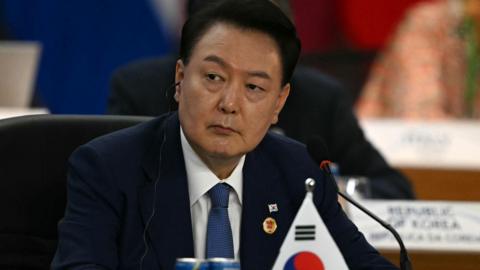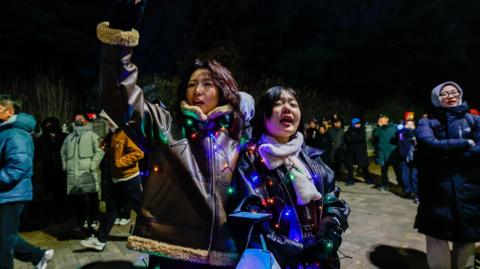The commander charged with the military takeover said he had learned of the decree on TV along with everyone else in the country.
He said he had refused to make his troops arrest lawmakers inside parliament, and did not give them live ammunition rounds.
The National Intelligence Service later confirmed rumours that Yoon had ordered the arrest and interrogation of his political rivals - and even some of his supposed political allies, such as his own party leader Han Dong-hoon.
These revelations saw some members of Yoon's own party signal their support for impeachment.
The president's apology on Saturday morning appeared to be a last-ditch effort to shore up support.
He said the martial law declaration had been made out of "desperation" and pledged he would not make another.
Yoon did not offer to resign, but said he would leave decisions on how to stabilise the country to his party.
Were he to be impeached, it would not be unprecedented. In 2016, then-President Park Geun-hye was impeached after being accused of helping a friend commit extortion.
If South Korea's parliament passes an impeachment bill, a trial would be held by a constitutional court. Two-thirds of that court would have to sustain the majority for him to be removed permanently from office.
Additional reporting by David Oh and Tiffanie Turnbull

